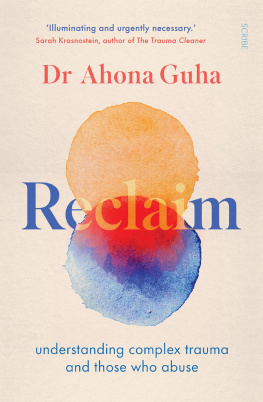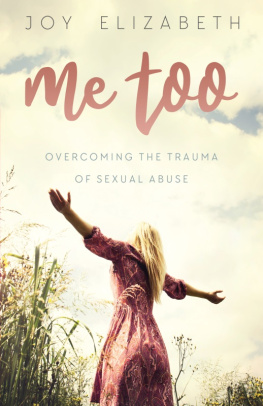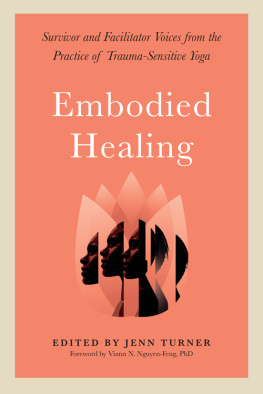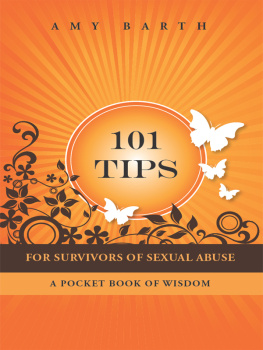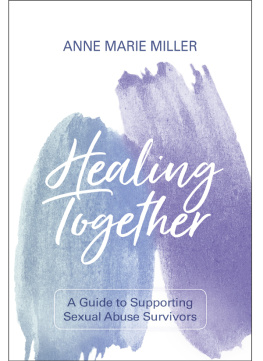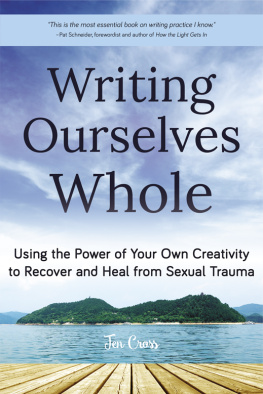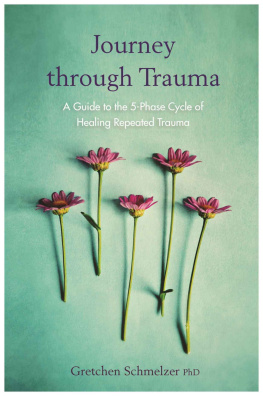
Reclaim
DR AHONA GUHA is a clinical and forensic psychologist, and a survivor with lived experience of complex trauma. Reclaim: understanding complex trauma and those who abuse is her first book. She works with victims of abuse and trauma, and clients with a range of other difficulties such as anxiety, depression, perfectionism, burnout, and relationship problems. She also works with perpetrators of harmful behaviours to assess risk, and provides treatment to reduce the risk they pose to others. She writes widely for the media on matters related to mental health, health, social justice, and equity. Her work has appeared in The Age , The Guardian , The Saturday Paper , and in Breathe Magazine , and on SBS and the ABC. She has a strong focus on social justice and seeks a world free of violence and harm, directing her work towards remedying the psychological drivers of these behaviours. She is passionate about equity, diversity, and advocacy and capacity-building for those historically marginalised.
Scribe Publications
1820 Edward St, Brunswick, Victoria 3056, Australia
2 John St, Clerkenwell, London, WC1N 2ES, United Kingdom
3754 Pleasant Ave, Suite 100, Minneapolis, Minnesota 55409, USA
Published by Scribe 2023
Copyright Ahona Guha 2023
All rights reserved. Without limiting the rights under copyright reserved above, no part of this publication may be reproduced, stored in or introduced into a retrieval system, or transmitted, in any form or by any means (electronic, mechanical, photocopying, recording or otherwise) without the prior written permission of the publishers of this book.
The moral rights of the author have been asserted.
Scribe acknowledges Australias First Nations peoples as the traditional owners and custodians of this country, and we pay our respects to their elders, past and present.
978 1 922585 68 4 (Australian edition)
978 1 914484 62 9 (UK edition)
978 1 957363 41 7 (US edition)
978 1 761385 09 4 (ebook)
Catalogue records for this book are available from the National Library of Australia and the British Library.
scribepublications.com.au
scribepublications.co.uk
scribepublications.com
For Kim for walking with me.
&
For my clients you inspire me daily with the trust you place in me, your willingness to change, and your courage in the face of darkness and pain. Thank you for allowing me the honour of walking alongside you.
Contents
A Note
There are a few things to note before you start reading this book.
This is a book about complex trauma and abuse. It discusses a range of troubling issues, and mentions child abuse, sexual violence, intimate partner violence, coercive control, stalking, and physical abuse. I have not sanitised this material for comfort it is important to clearly demonstrate the nature of the difficulties that people experience and live with but nor have I presented gratuitous detail that might overwhelm you. As you read, I encourage you to be aware of your own emotional responses to the material and any trauma history you might carry and to give yourself permission to pause reading if any distressing emotional experience occurs.
I have focused on trauma and abuse through an objective lens, to best help everyone understand these harms. Sometimes objectivity can feel like invalidation in the face of deeply felt emotion and painful experiences. My statements are designed to inform and to acknowledge the complex nuances of these areas; they are not intended to invalidate or dismiss distress. This book is not intended to be a replacement for professional advice, nor is it designed to be used as a resource by those currently in crisis.
The principle of confidentiality is paramount in therapy clients expect and deserve that their stories will be held in utmost confidence, and that any breaches of these boundaries will occur only in certain circumstances, and with full awareness of the ethical implications. Confidentiality is an especially strong guiding principle when working with traumatised clients who have had their boundaries repeatedly breached. In this book, I have balanced the need to provide some clinical material to convey the richness and depth of trauma work with maintaining the confidentiality of my clients. After careful consideration, I have decided that composite cases are the most ethical means of illustrating my points. In each case, I have utilised the general clinical dynamics and issues that come up when working with trauma clients while making sure that specific details (such as names and ages) are fictional. Many clients with abuse histories have similar troubles, and I have been able to create realistic and accurate composites by building case studies around the symptom clusters I commonly see in my practice.
The clients I have described from my work in forensic psychology have also undergone a similar process. Adrian (Chapter 6) is an amalgam of many of the stalkers and intimate partner violence offenders I have seen. People who engage in offences of this type often share some characteristics, behaviours, and histories, and I have used my knowledge of the risk literature and the hundreds of police reports I have read to create his character. Madison (Chapter 2) and Kate (Chapter 5) are also composite cases, based on my work with female clients in the forensic system. I have written of some horrific trauma histories within the correctional system, and some readers might think that these histories are immediately identifying. Unfortunately, these histories are common, though often unspoken. Most of my female forensic clients were severely sexually and physically abused by caregivers, and their history is not enough to identify them nonetheless, Ive changed key circumstances to mitigate this slight risk and have only provided details when necessary to illustrate a clinical point.
Finally, I need to say that while I work for a public forensic mental health service, all views expressed in this book are my own only and are not representative of the views held within my organisation, or of the broader legal, correctional, and mental health systems within which I work. Any discussion of specific mental health or correctional settings utilises information that is available in the public domain. I discuss a range of personal experiences in this book and acknowledge that my recollection of events is imperfect and that other peoples memories may differ. When I have discussed real events, names and identifying characteristics have been removed.
The tasks of a psychologist and a writer often diverge, though I consider that truth-telling and advocacy for those whose voices have been ignored are the tasks of both. In the Sisyphean task of merging these two roles, I have been guided above all by my own ethics and values, and desire to effect change while openly and compassionately acknowledging realistic systemic limitations.
Introduction
The early years of the 2020s were exceedingly hard for many of us. We lived through a pandemic and all its attendant difficulties, including separations from those closest to us, illness and death, despair, collapsed health systems, and massive declines in mental health. Though my work remained stable, there were times I found myself shaken by a deep existential terror. Nothing felt meaningful, I felt utterly disconnected from everyone I loved, and I had no hope for humanity, or myself.
These terrifying dark thoughts and feelings made sense when placed in the context of a global pandemic. The COVID-19 pandemic brought to the world a type of collective trauma on a scale previously unknown in our lifetimes. This came not only in the form of health and economic forces, but also relational and social ones: many of us were ripped apart from each other, left bereft of hope, and struggled through without the capacity to band together. When given the opportunity to connect, some of us declined, exhausted and terrified of re-entry to the world. Our reactions have mirrored those of survivors of serious childhood neglect, who often demonstrate complete withdrawal and an inability to connect with other people.
Next page
